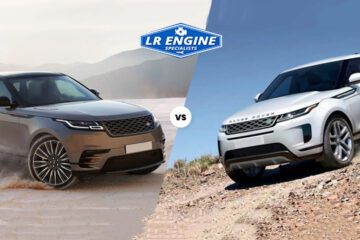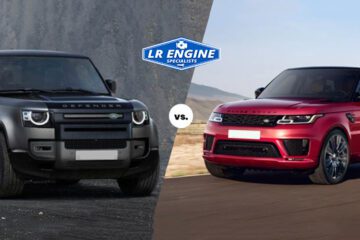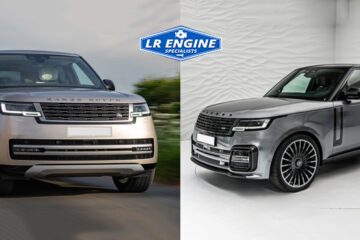Introduction:
When the terrain gets rugged, the Range Rover diesel engine vs the Range Rover petrol engine off-road capability becomes a significant showdown. Among off-road enthusiasts, the discussion surrounding the Range Rover diesel engine vs the Range Rover petrol engine off-road capability is an admired one. Both engines bring specific traits to the table, each surpassing in different aspects of off-road adventures. This analysis explores how each engine tackles several conditions, offering insight into its capabilities on rocky terrain. Ultimately, it’s clear which engine stands out as the favorite choice for tackling demanding landscapes.
Understanding Off-Road Demands: The Nature of Rocky Terrain
Range Rover diesel engine vs Range Rover petrol engine off-road capability includes understanding the basic requirements of rocky terrain. Navigating rocks needs more than raw horsepower; it prioritizes torque, controlled traction, engine durability, and intelligent drivetrain systems. A vehicle’s capability in such environments depends heavily on how power is distributed, ground clearance, throttle response, and generally mechanical resilience.
Powertrain Basics: Diesel and Petrol Explained
The main difference between diesel and petrol engines lies in combustion methods and torque delivery. Diesel engines ignite fuel using compression, resulting in greater torque at lower RPMs. Petrol engines depend on spark ignition and normally offer smoother and immediate acceleration. The relevance of these characteristics becomes glaringly apparent when you’re scaling a rugged, rock-laden path.
Torque: The King of Rock Crawling
When it comes to rocky terrain, torque is the deciding factor. Diesel Range Rovers deliver impressively higher torque at lower RPMs compared to petrol variants. This torque benefit means diesel engines can deliver steady, controlled power to the wheels during slow rock crawling. This is essential when traction is limited and precision is required to navigate over jagged surfaces without losing grip or damaging the vehicle.
Throttle Control: Smooth Inputs, Better Outcomes
Throttle response in the Range Rover diesel engine vs the Range Rover petrol engine off-road capability is another defining benchmark. Diesel engines, by design, offer smoother power delivery. This means when off-roading, specifically over rocks, the diesel engine allows effortless acceleration with fewer jerks. Petrol engines, while more responsive, can be twitchy and overly sensitive for the tricky task of rock crawling.
Fuel Efficiency: More Than Just Economy
Fuel economy may not be the top priority in off-road environments, but when you’re far from civilization, diesel efficiency becomes a distinct advantage. Diesel engines generally consume less fuel than their petrol counterparts, enabling adventurers to go farther on a single tank. This is vital when you’re navigating through remote, rocky landscapes where fuel stations are nonexistent.
Engine Braking: The Underrated Off-Road Tool
One of the less discussed features that shines in the Range Rover diesel engine vs the Range Rover petrol engine off-road capability is engine braking. Diesel engines surpass in this area due to their compression ignition and higher compression ratios. Descending rocky paths requires slow, controlled movement, and Diesel’s superior engine braking helps to manage low speeds without constant brake input, reducing wear and enhancing control.
Vehicle Weight and Center of Gravity
Diesel Range Rovers tend to be heavier due to their engine design and extra components such as turbochargers and intercoolers. This additional weight can be a double-edged sword. Meanwhile, it lowers the center of gravity, which can support stability on uneven ground. On the other hand, it can also make the vehicle more susceptible to sinking in soft patches or becoming difficult to recover if stuck. Petrol engines, being lighter, may offer a little bit better agility and ease of tackling in tight rocky sections.
Heat Management and Cooling Efficiency
When tackling the toughest rocky terrain at slow speeds for long periods, engine heat becomes a concern. Diesel engines normally run cooler and are more thermally efficient than petrol engines, specifically under load. The Range Rover diesel engine can maintain excellent temperatures for extended periods, minimizing the risk of overheating while rock crawling.
Suspension and Drivetrain Integration
Both petrol and diesel Range Rover versions come equipped with Land Rover’s advanced Terrain Response system. However, each engine interacts with this technology differently. The diesel engine’s high torque at low RPMs works cooperatively with the system’s rock crawl mode, offering better throttle modulation. Meanwhile, petrol models benefit from instant response times, enabling more aggressive maneuvers when needed.
Real-World Test Results: Drivers Speak
Many off-road enthusiasts who have tested both versions argue in favor of diesel when the landscape gets truly rugged. Actual tests have shown that the Range Rover diesel engine vs the Range Rover petrol engine off-road capability contrast consistently highlights the diesel model’s ability to climb, descend, and maneuver through rocks with more control and less strain.
Maintenance Considerations in Off-Road Scenarios
While diesel engines are often regarded as more reliable and better suited for long, grueling journeys, they do come with their own set of maintenance requirements. Diesel particulate filters (DPFs) and more complicated emission systems can pose challenges. However, these are small when weighed against the powerful performance benefits diesel offers in the toughest off-road situations.
Petrol engines, though often simpler to maintain and less susceptible to some emission-related issues, can struggle more in off-road conditions due to the higher heat production and the demands of high-rev usage.
Noise and Vibration: Comfort on the Rocks
While not directly associated with the performance, cabin comfort matters, specifically on rough terrain. Diesel engines tend to generate more vibration and noise, which might affect driver fatigue levels over prolonged periods. Petrol engines are quieter and effortless, offering a more comfortable ride, something to look for if you’re mixing daily driving with occasional rock exploration.
Cost and Value Over Time
The initial cost difference between petrol and diesel Range Rovers may affect a buyer’s choice. Diesel variants are often a little more expensive due to engine complexity. However, the long-term value of diesel Range Rover off-road capability often outweighs the upfront expense, especially for those who venture into rocky territory routinely.
Performance Under Load
If your off-roading involves carrying heavy gear or towing equipment, diesel again takes the lead. Its high torque and better load management make it perfect for situations where additional weight is a factor. Petrol engines may falter under heavy loads in rocky environments due to their powerband characteristics.
Environmental Considerations
While diesel engines have been denigrated for higher NOx emissions, modern diesel technology has impressively improved. Petrol engines, despite being cleaner in some areas, are less efficient under load and may consume more fuel during off-road adventures. For the environmentally conscious, both choices now offer cleaner, more responsible designs than in the past.
The Verdict: Diesel Reigns Supreme in Rocky Conditions
Discussing all factors into account, such as torque, engine braking, thermal management, and actual user experience, the Range Rover diesel engine is appropriate for rocky terrain. Its ability to deliver accurate, low-speed torque, superior engine braking, and fuel efficiency makes it the perfect choice for serious off-roaders.
That’s not to say the petrol engine isn’t capable. For lighter adventures, mixed-use driving, and those who value refinement, the petrol Range Rover offers a fascinating experience. But when the trail turns to rock and the path becomes a test of endurance and control, diesel proves to be the more efficient powertrain.
Final Thoughts:
At the end of the day, opting between the Range Rover diesel engine vs the Range Rover petrol engine off-road capability comes down to your customized needs and driving style. If conquering rocky trails with confidence, control, and power is your goal, diesel stands tall. For those looking for a smoother, more urban-friendly experience with occasional off-road forays, petrol delivers comfort and immediate response.
For the best in Range Rover engine upgrades, rebuilds, and specialist advice, visit LR Engine Specialists, your go-to authority on everything Range Rover. We’ve got you covered, whether it’s boosting diesel torque or refining petrol performance.
FAQs:
Which engine is perfect for rock crawling, diesel or petrol?
The diesel engine is ideal for rock crawling due to its higher torque at lower RPMs, offering controlled power for tricky terrain.
Does the diesel Range Rover have better fuel efficiency?
Yes, diesel engines generally offer better fuel economy, enabling longer off-road trips without the need for frequent refueling.
Which engine performs better under heavy loads or towing?
Diesel engines shine under heavy loads, providing superior torque for towing and managing weight on rocky terrain.
Are there maintenance differences between diesel and petrol Range Rovers?
Diesel engines need more maintenance, like dealing with diesel particulate filters, but they offer greater off-road reliability.
Is the petrol Range Rover a good choice for mixed-use driving?
Yes, petrol Range Rovers are perfect for mixed-use driving, offering effortless acceleration and a more refined driving experience.


